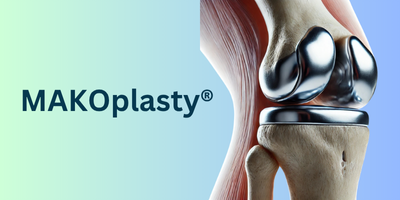Joint replacement surgery, also known as endoprosthetics, is a procedure in which a damaged joint is replaced with an artificial implant. This intervention helps restore mobility, reduce pain, and significantly improve a patient’s quality of life. Germany is recognized as one of the global leaders in this field, offering highly trained specialists, advanced technologies, and high-quality biocompatible materials.
When Joint Replacement Is Recommended
Joint replacement is considered when a joint can no longer perform its functions, causes persistent pain, or limits mobility despite conservative treatments such as medication or physiotherapy. Common medical indications include:
- Degenerative joint diseases: Osteoarthritis, arthrosis.
- Inflammatory conditions: Rheumatoid arthritis, joint infections.
- Trauma: Complex fractures or injuries not treatable by other means.
- Congenital conditions: Dysplasia, severe joint deformities.
- Osteonecrosis: Loss of bone tissue due to impaired blood supply.
- Oncological conditions: Bone or musculoskeletal cancer requiring surgical intervention.
In Germany, joint replacement is recommended when conservative methods no longer provide relief. This surgical solution can restore previous levels of activity and reduce chronic discomfort.
Types of Joint Replacement Procedures in Germany
Femoral Head Prosthesis
This technique is used when the femoral head is damaged or destroyed. Implants may be made of metal, ceramics, or polymers, ensuring durability and functionality. It is often preferred for younger patients to preserve as much natural bone tissue as possible.
Femoral Neck Prosthesis
Indicated for traumatic injuries or degenerative diseases affecting the femoral neck. The surgery restores the anatomical structure of the joint, improves mobility, and reduces pain. Prostheses are selected based on age, activity level, and patient anatomy.
Ankle Joint Replacement
For severe arthritis or trauma, German orthopedic surgeons use modern biocompatible prostheses that provide long service life, excellent functionality, and a low risk of complications. Minimally invasive techniques are often applied, allowing for faster recovery.
Knee Replacement
Performed for advanced joint damage, deformities, or osteoarthritis. Depending on the extent, the procedure can involve:
Hip Resurfacing (McMinn Technique)
This bone-preserving method retains most of the patient’s own bone tissue, making it particularly suitable for active younger patients. The prostheses used are highly durable, ensuring long-term functionality.
Advantages of Joint Replacement in Germany
German orthopedic centers are known for:
- Modern technology: Robotic-assisted surgery, 3D preoperative planning, and minimally invasive techniques for reduced trauma and quicker recovery.
- Highly qualified surgeons: Extensive training and experience in complex procedures.
- Premium materials: Stringent quality checks ensure durability and biocompatibility of implants.
- Individualized treatment plans: Tailored to the patient’s age, health status, and lifestyle.
- Comprehensive rehabilitation: Structured recovery programs designed to restore mobility and function as quickly as possible.
German clinics also emphasize patient well-being, offering psychological support before and after surgery to reduce anxiety and improve recovery outcomes.
Patient Support in Germany
Organizing medical treatment abroad requires professional assistance. AskGermanDoc offers comprehensive support services for patients seeking joint replacement in Germany, including:
- Selection of specialized clinics and surgeons
- Video consultations before travel
- Professional translation of medical records
- Visa assistance, accommodation, and transport arrangements
- On-site medical interpreters for accurate communication with doctors
Many clinics also provide comfortable inpatient conditions for international patients, such as private rooms, meal options, and the possibility of a companion staying during the hospital stay.
Cost of Joint Replacement in Germany
The cost varies depending on the type of surgery, implant materials, and the clinic’s level. Approximate prices:
- Hip replacement: €15,000–€25,000
- Knee replacement: €14,000–€20,000
- Ankle joint replacement: from €12,000
Conclusion
Germany combines advanced surgical technologies, highly trained specialists, and excellent patient care. Choosing joint replacement in Germany offers reliability, high success rates, and comfort. With AskGermanDoc, patients can access top German clinics, receive tailored treatment plans, and benefit from complete logistical and language support.
Sources:
- German Society for Orthopaedics and Orthopaedic Surgery (DGOOC)
- European Hip Society Guidelines
- World Health Organization – Musculoskeletal Health Reports
Disclaimer: This article is intended for informational purposes only and does not replace professional medical advice. Always consult a qualified healthcare provider before making decisions about your health or treatment options.




